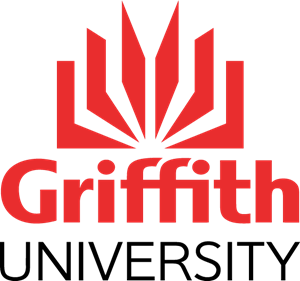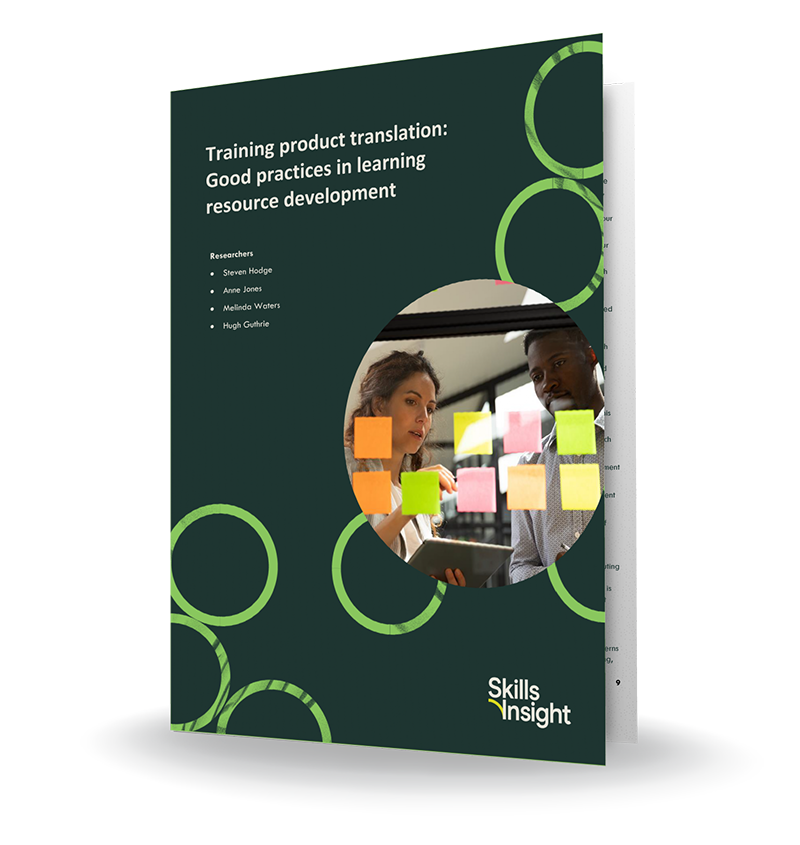While training packages outline the required knowledge and performance criteria for job roles within an industry, they do not prescribe the training or learning process. Registered training organisations (RTOs) use training packages to help design their curriculum or training programs, and there is a wide range of ways each RTO approaches this process. This project will investigate the different ways RTOs go about interpreting and translating training packages into training programs with the aim of supporting best practice and innovation in curriculum development.
Click across the tabs to view active and completed project stages. Consultation takes place at every stage of the project.
The research will look at innovative curriculum design and implementation practices, including how RTOs add value to qualifications and other training package products to better serve the needs of particular employers, student groups and communities. Research will consider the challenges faced by RTOs when translating training package content.
The insights gained from this research project will help inform future JSC activities, providing insight into:
Subscribe for updates
If you would like to receive updates about this project, please subscribe to our newsletter and select ‘general newsletter’ as one of your industries of interest.
Project Scope
The project will include desktop research, a literature review, a survey, interviews and site visits, covering three critical qualifications for the workforce served by Skills Insight:
These qualifications have been chosen because they are widely used by RTOs, but each supports a different range of occupations. As a result, this research will be able to collect valuable insights into how RTOs approach qualifications with different intended outcomes and purposes.
This approach recognises that some qualifications are closely associated with specific occupational outcomes, while others have a more general purpose. For example, the majority of graduates from the Certificate IV in Veterinary Nursing become veterinary nurses. The Certificate III in Agriculture supports a broader range of occupational outcomes across the agricultural sectors. The Certificate II in Rural Operations is used to provide learners with the foundational skills required for many roles across rural and regional industries. As such, each qualification requires a different approach by RTOs when translating the skills standards into training programs.
Consultation
A range of training providers have been invited to participate in this research project. They represent public and private RTOs, of various sizes, across a variety of geographic locations, with a variety of student cohorts and degrees of specialisation.
However, all RTOs are welcome to provide feedback at any time throughout the project. We encourage you to register for project updates through our newsletter using the subscription button above. Alternatively, get in touch with the Project Manager, Ngaire Stratton, at [email protected] or by calling 03 9321 3526.
Project Timeline

Project Team

Ngaire Stratton
Project Manager, Skills Insight
[email protected]

Diana McNaughton
Stakeholder Engagement Manager, Skills Insight
[email protected]
In collaboration with Griffith University
Skills Insight is undertaking this research project in collaboration with Griffith University. Consultation with RTOs will explore how they go about choosing and translating training package products, such as qualifications and units of competency, and analysing current industry practices and student needs to develop curricula and deliver training.
Griffith University will develop a report based on the consultation and research findings, including what is known about translating training packages into training programs in Australia and similar national curricula internationally, and research into resource creation in other education and training sectors. The centrepiece of the report will be a model of translation with a set of recommendations to support best practice in translating training products. It will build on current RTO capabilities and processes for developing, contextualising and updating resources, delivery strategies and plans to support learning.

The Griffith University team conducted a schedule of on-site interviews with RTOs around the country in June and July. RTOs were also invited to respond to a survey around their experiences developing learning and assessment resources.
A range of training providers were invited to participate, all of which deliver at least one of the three qualifications identified for inclusion in this project:
Subscribe for updates
If you would like to receive updates about this project, please subscribe to our newsletter and select ‘general newsletter’ as one of your industries of interest.
The team sought insights into the challenges faced by RTOs when translating training package content, as well as how RTOs use curriculum design and implementation practices to best meet the needs of particular employers, student groups and communities.
In collaboration with Griffith University
Skills Insight is undertaking this research project in collaboration with Griffith University. Consultation with RTOs will explore how they go about choosing and translating training package products, such as qualifications and units of competency, and analysing current industry practices and student needs to develop curricula and deliver training.
Griffith University will develop a report based on the consultation and research findings, including what is known about translating training packages into training programs in Australia and similar national curricula internationally, and research into resource creation in other education and training sectors. The centrepiece of the report will be a model of translation with a set of recommendations to support best practice in translating training products. It will build on current RTO capabilities and processes for developing, contextualising and updating resources, delivery strategies and plans to support learning.

The research examined the challenges RTOs face when translating training package content into curriculum. This process is a critical part of the VET system, as it can affect an RTO’s viability and, in turn, the availability and accessibility of training.
The project team has completed research into how RTOs approach this translation process, highlighting challenges and strategies that promote effective training design.
A report has been produced and submitted to the Department of Employment and Workforce.
The report outlines the research findings and includes recommendations across three categories:
The recommendations are being considered and is one of the imports into our workforce planning.
Key findings
Twelve registered training organisations (RTOs) – four per qualification – were engaged in the research process to gain insights into translation and its challenges.
The research found that curriculum development was driven by the purpose of each qualification and guided by a shared sentiment for upskilling people for identified job roles, to deliver community benefit, particularly in regional areas.
The research confirmed that educators follow a high skill, resource intensive process of framing, structuring, elaborating and organising content of Training Packages to develop curriculum. The required effort is necessary but also constitutes a significant investment hurdle for an RTO in determining whether to deliver a qualification or not.
Good practices for curriculum development include:
- Collaborative, educator-led translation
- Deep roots in community and industry
- Designing for inclusion
- Authentic learning using simulation
- Weaving knowledge into competencies
- Enhancing qualification outcomes.
The research found that RTO viability is a key concern of providers and impacts on decisions about curriculum development and training delivery. Curriculum development was hampered by concerns regarding compliance and regulation, the difficulties in sequencing training given licensing, funding and student learning requirements.
The research revealed the complexity faced by RTOs when creating or modifying a training course or resource. This complexity includes determining the course purpose, managing pre-translation, translation and mobilisation processes, and addressing challenges.
The findings informed recommendations on how to support RTOs in streamlining the translation process and the VET system in enhancing the overall translation environment, rather than focusing on particular components of the process.
Examining translation across qualifications with varying purposes
The research examined how training packages are translated into curriculum across three widely used qualifications, each supporting a different range of occupations. It recognised the varying purposes of qualifications, from foundational and generic skills to highly specialised skills.
The research found that educators were already considering both industry and student perspectives when creating or selecting training and assessment materials, complementing the Qualifications Reform Design Group’s subsequent identification of a purpose continuum, which ranges from foundational and generic skills to highly specialised skills. Educators appreciated the flexibility of the qualifications and units within the relevant Training Packages, particularly the broad range of electives available for foundational qualifications and the opportunity to integrate the latest research into specialist qualifications.
Certificate II in Rural Operations
About the research
A collaboration with Griffith University
The research is the first systematic attempt to describe Training Package translation by VET providers. The project was commissioned by Skills Insight through an industry led activity process approved and funded by a Commonwealth Department of Education and Workplace Relations (DEWR) grant.
The Griffith Institute for Educational Research (GIER) at Griffith University was engaged by Skills Insight to conduct the research, which was undertaken between April and September 2024. The GIER team, comprising Steven Hodge, Anne Jones, Melinda Waters and Hugh Guthrie, worked together with Skills Insight to plan and manage the project. The Griffith University Human Research Ethics Committee reviewed and approved the research (Reference: 2024/264).
GIER used a translation model to assist in analysing the curriculum development process based on Training Packages.
The research was conducted with 12 RTOs – four per each qualification. They were consulted to gain insights into translation and its challenges, and they were asked:


